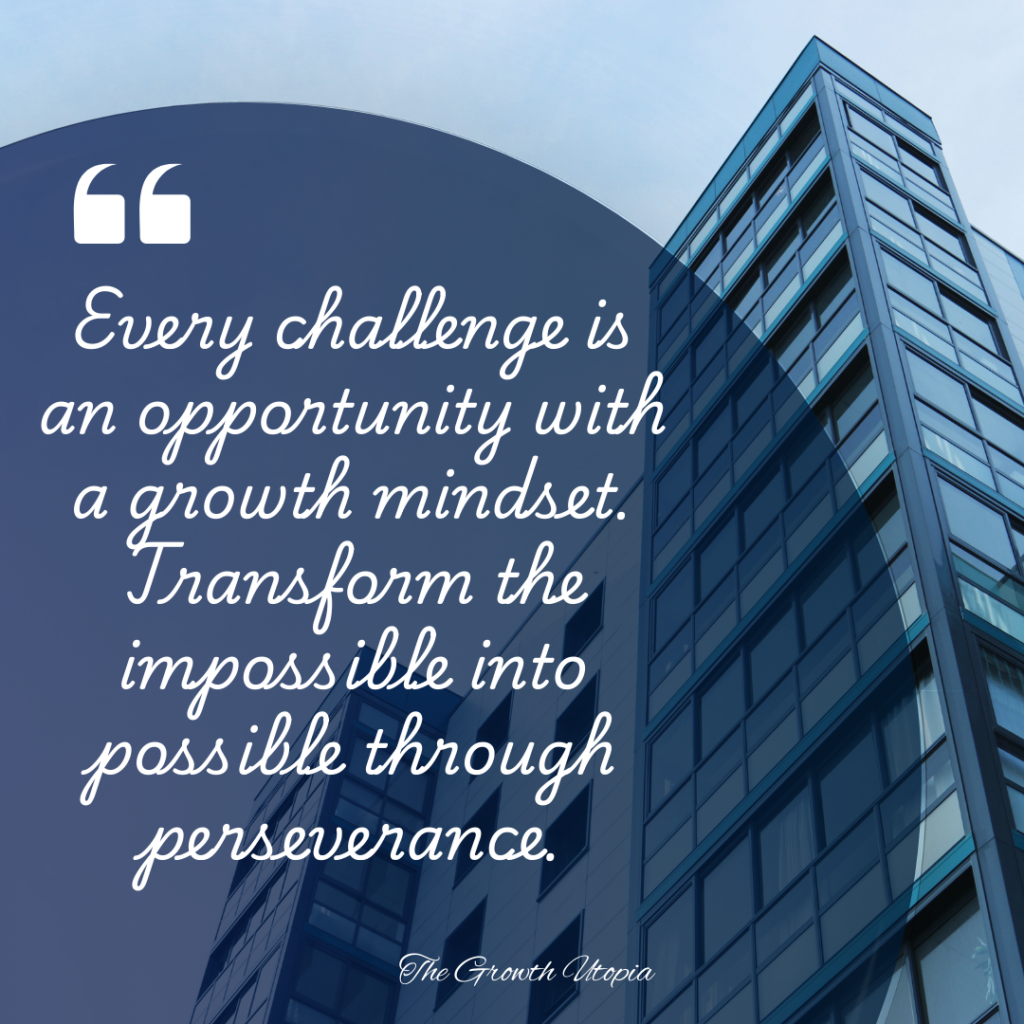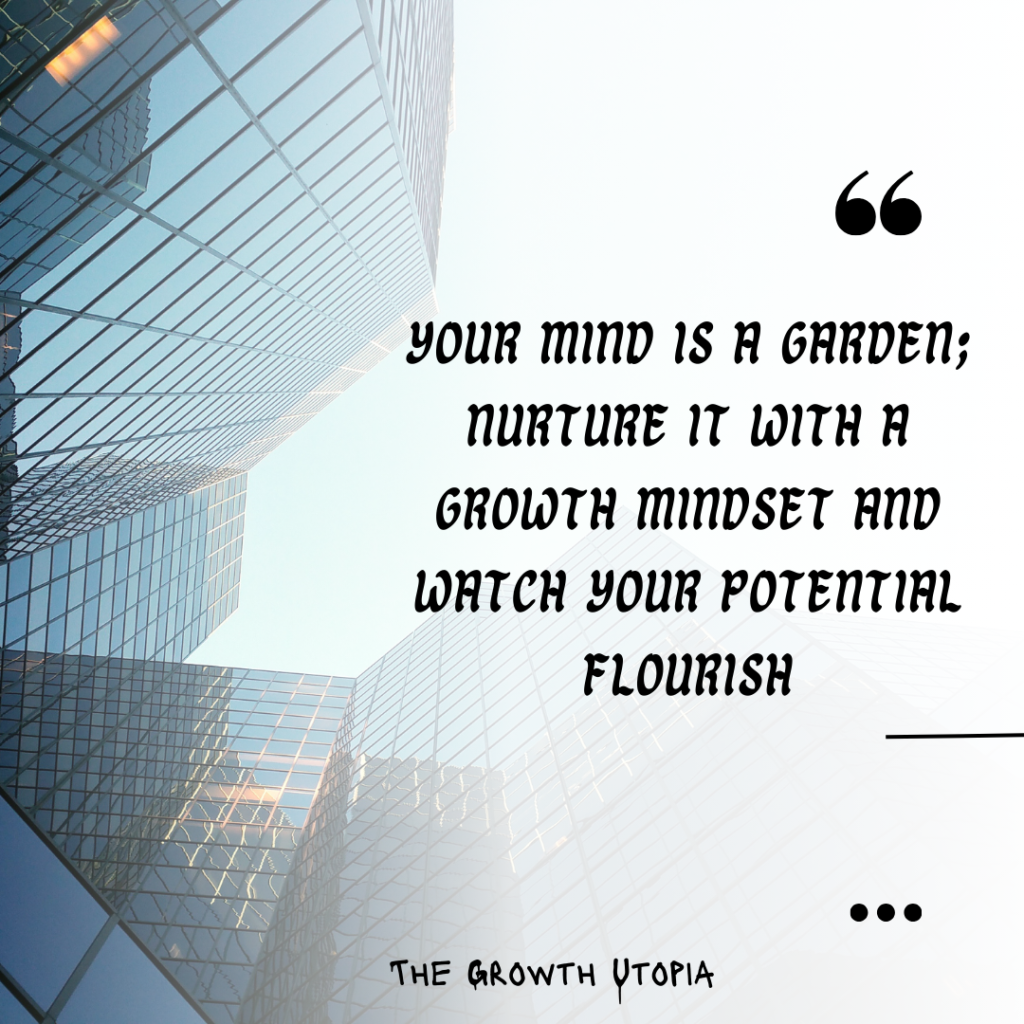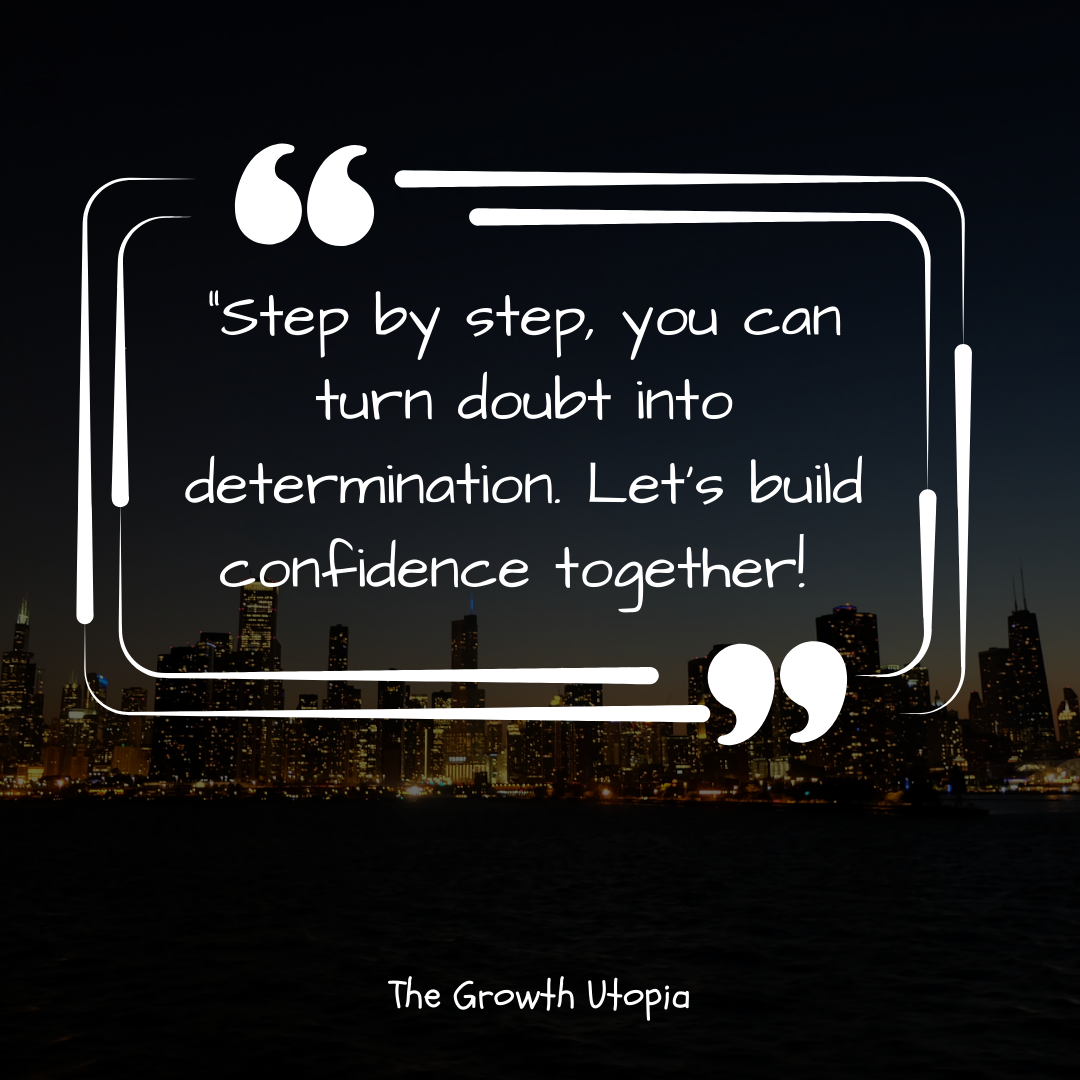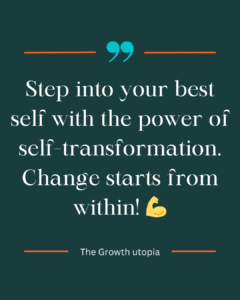Overcoming Self-Doubt: Building Confidence One Step at a Time
Self-doubt is a common problem that many of us face, whether in our personal lives or career. It whispers that we are not good enough, smart enough or worthy enough. But the good news is that overcoming self- doubt is possible and you don’t have to do it all at once. Building confidence is a journey that can be navigated step by step. Here’s some steps that will help you conquer self-doubt and foster a more confident, empowered you.
Table of Contents
1. Acknowledge Your Self-Doubt
The first step is to overcome your self-doubt is acknowledge. Recognize when self-doubt is creeping in and observe how it affects your thoughts and actions. Self-doubt is a common experience, one that can creep in at any stage of our lives. Whether it’s in our personal relationships, careers, or creative pursuits, we all face moments when we question our abilities and decisions. Instead of pushing these feelings aside, acknowledging self-doubt can be the first step toward personal growth and resilience.
Understanding Self-Doubt
Self-doubt manifests in many forms: fear of failure, feelings of inadequacy, and the relentless comparison to others. It can be triggered by various factors, such as past experiences, social pressures, or high expectations we set for ourselves. Recognizing that self-doubt is a normal part of the human experience can help alleviate some of its power over us.
The Benefits of Acknowledging Self-Doubt
- Self-Awareness: Acknowledging self-doubt allows us to explore our thoughts and feelings more deeply. By understanding the root causes, we can begin to challenge negative beliefs.
- Growth Mindset: Embracing self-doubt fosters a growth mindset, where we view challenges as opportunities to learn rather than threats to our competence.
- Authenticity: Accepting our insecurities can lead to greater authenticity. When we share our doubts with others, we often find common ground and support, creating stronger connections.
Strategies to Embrace Self-Doubt
1. Reflect on Your Doubts
Take time to journal about your feelings of self-doubt. Ask yourself questions like:
- What specific situations trigger my self-doubt?
- Are these doubts based on facts or perceptions?
- What evidence do I have to counter these feelings?
2. Challenge Negative Thoughts
When you notice self-doubt creeping in, practice cognitive restructuring. Replace negative thoughts with more balanced perspectives. For example, instead of thinking, “I’m not good enough,” reframe it to, “I’m still learning and have room to grow.”
3. Seek Support
Share your feelings with trusted friends or mentors. They can provide encouragement, perspective, and remind you of your strengths. Sometimes, simply vocalizing your doubts can diminish their intensity.
4. Set Realistic Goals
Break down your larger goals into smaller, achievable steps. This can help reduce feelings of overwhelm and provide a clearer path forward. Celebrate each small victory, which reinforces your competence.
5. Practice Self-Compassion
Be kind to yourself when doubts arise. Recognize that everyone experiences self-doubt at some point. Treat yourself as you would treat a friend in a similar situation—offering understanding and encouragement rather than criticism.

2. Ending self-doubt: Set achievable goals
Self-doubt can be a formidable barrier, hindering our progress and stifling our potential. It often creeps in during times of uncertainty, leading us to question our abilities and worth. The good news is that there are effective strategies to combat this nagging feeling, and one of the most powerful tools at our disposal is setting achievable goals. Building confidence often requires setting and achieving small, manageable goals. Instead of aiming for a huge, daunting target, focus on what you can do right now. For example, if you want to get fit, start with a goal like exercising for 15 minutes a day rather than running a marathon (something that takes a very long time and makes you very tired). Celebrate each small win along the way, as these small victories will build your confidence and keep you motivated. By setting and reaching these smaller goals, you’ll make steady progress and feel more capable of tackling bigger challenges in the future.
Understanding Self-Doubt
Self-doubt can manifest in various ways—fear of failure, hesitation to take risks, or even an overwhelming sense of inadequacy. It can prevent us from pursuing opportunities and achieving our dreams. Recognizing the triggers of self-doubt is the first step towards overcoming it. Often, these feelings arise during challenging times, such as starting a new job, moving to a new city, or taking on new responsibilities.
The Role of Goal Setting
Setting clear, manageable objectives is an effective way to combat self-doubt. Here’s how this approach can help:
1. Building Confidence
When we set achievable goals, we create a roadmap for success. Each small victory boosts our confidence and reinforces our belief in our abilities. For instance, if your goal is to run a marathon, breaking it down into smaller steps—like running a few miles each week—makes the task feel less daunting. Each completed run is a step towards your ultimate goal, providing a sense of accomplishment.
2. Tracking Progress
Goals allow us to track our progress objectively. Instead of feeling overwhelmed by the bigger picture, we can focus on our incremental achievements. This progress can serve as tangible evidence of our capabilities, helping to quiet the inner critic. Consider keeping a journal or using an app to monitor your milestones, which can provide motivation and insight into how far you’ve come.
3. Fostering a Positive Self-Image
As we achieve our goals, we begin to reshape our self-image. Each accomplishment reinforces the belief that we are capable and worthy. This positive reinforcement helps to create a cycle of confidence: the more we achieve, the more we believe in ourselves. Over time, this can significantly diminish feelings of self-doubt.
Setting Effective Goals
To maximize the benefits of goal setting, it’s essential to follow a structured approach:
1. Make Them SMART
- Specific: Clearly define what you want to achieve.
- Measurable: Determine how you will measure your success.
- Achievable: Ensure your goals are realistic and attainable.
- Relevant: Align your goals with your values and long-term objectives.
- Time-bound: Set a deadline to create a sense of urgency.
2. Start Small
Begin with smaller goals that are easy to accomplish. This can help build momentum and create a foundation of success. For example, if your ultimate goal is to write a book, start by committing to write a certain number of words each day.
3. Celebrate Achievements
Take time to celebrate your successes, no matter how small. Acknowledging your hard work reinforces positive feelings and motivates you to continue striving toward your goals.

3. Develop a Growth Mindset and say goodbye to self-doubt
Self-doubt can feel like an ever-present shadow, lurking just when you need confidence the most. It can stifle creativity, impede progress, and hold you back from reaching your true potential. However, one of the most effective ways to combat self-doubt is by cultivating a growth mindset. Embracing this way of thinking can transform your approach to challenges and help you bid farewell to self-doubt once and for all.
What is a Growth Mindset?
Developing a growth mindset means believing that your abilities and intelligence can improve with effort and practice. Instead of thinking you’re stuck with your current skills or talents, see challenges as chances to learn and grow.
How a Growth Mindset Helps Overcome Self-Doubt
1. Emphasizing Learning Over Perfection
When you have a growth mindset, you view challenges as opportunities for learning rather than tests of your ability. This shift in perspective allows you to approach setbacks with curiosity instead of fear. Rather than dwelling on mistakes or feeling inadequate, you can analyze what went wrong and use that insight to improve. This process helps to diminish feelings of self-doubt, as you start to see failure as a stepping stone toward growth.
2. Celebrating Effort and Progress
A growth mindset encourages you to value effort and progress over inherent talent. When you focus on your journey rather than the outcome, you can appreciate the hard work you put in, regardless of the results. This can be particularly empowering when faced with self-doubt, as it reinforces the notion that growth is a continuous process. Celebrating small victories along the way boosts your confidence and reminds you that every step counts.
3. Reframing Challenges as Opportunities
Challenges are inevitable, but a growth mindset allows you to view them as opportunities for development rather than obstacles. When self-doubt creeps in, remind yourself that each challenge is a chance to learn something new. This mindset shift not only helps reduce anxiety but also prepares you to tackle tasks with enthusiasm and a sense of purpose
How to Cultivate a Growth Mindset
1. Practice Self-Reflection
Take time to reflect on your thoughts and beliefs. When you notice self-doubt creeping in, ask yourself whether these thoughts stem from a fixed or growth mindset. Challenge negative beliefs and reframe them in a more positive light. For instance, instead of thinking, “I can’t do this,” try, “I can learn how to do this with practice.”
2. Embrace Challenges
Seek out challenges that push you out of your comfort zone. Whether it’s taking on a new project at work, learning a new skill, or engaging in a challenging hobby, stepping outside your comfort zone can help you develop resilience and confidence. Remember, every challenge is an opportunity to grow.
3. Surround Yourself with Positivity
Engage with people who encourage a growth mindset. Surrounding yourself with supportive individuals who celebrate learning and progress can have a profound impact on your own mindset. Share your goals and aspirations with them, and allow their encouragement to fuel your journey.
4. Seek Feedback and Learn from It
Constructive feedback is invaluable for growth. Instead of fearing criticism, view it as a chance to learn. Use feedback to identify areas for improvement and develop a plan to address them. This approach not only helps you grow but also diminishes the sting of self-doubt.

For Example: If you struggle with a new skill, view it as an opportunity to get better rather than a sign of failure. Embracing this mindset helps you stay motivated, overcome obstacles, and continuously develop your potential.
When you view challenges as opportunities for growth rather than threats to your self-worth, you are more likely to persevere and build resilience. Remind yourself that making mistakes is a natural part of learning and improving.
The future belongs to those who believe in the beauty of their dreams.” — Eleanor Roosevelt














Post Comment